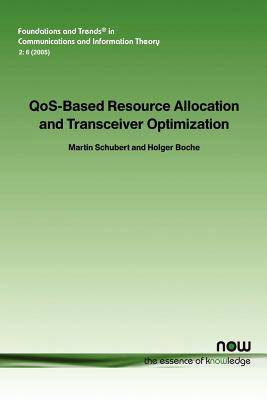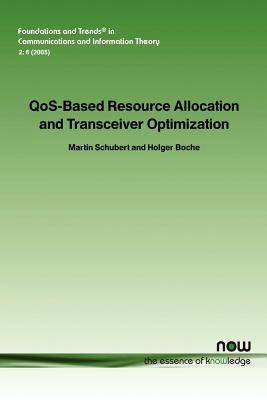
- Afhalen na 1 uur in een winkel met voorraad
- Gratis thuislevering in België vanaf € 30
- Ruim aanbod met 7 miljoen producten
- Afhalen na 1 uur in een winkel met voorraad
- Gratis thuislevering in België vanaf € 30
- Ruim aanbod met 7 miljoen producten
Zoeken
€ 110,45
+ 220 punten
Omschrijving
QoS-Based Resource Allocation and Transceiver Optimization derives a comprehensive theoretical framework for SIR balancing, with and without noise. The theory considers the possible use of receive strategies (e.g. interference filtering or channel assignment), which can be included in the model in an abstract way. Power allocation and receiver design are mutually interdependent, thus joint optimization strategies are derived. QoS-Based Resource Allocation and Transceiver Optimization provides a better understanding of interference balancing and the characterization of the QoS feasible region. It also provides a generic algorithmic framework, which may serve as a basis for the development of new resource allocation algorithms. QoS-Based Resource Allocation and Transceiver Optimization is an invaluable resource for every engineer and researcher working on multiuser interference problems in wireless communications.
Specificaties
Betrokkenen
- Auteur(s):
- Uitgeverij:
Inhoud
- Aantal bladzijden:
- 164
- Taal:
- Engels
- Reeks:
- Reeksnummer:
- nr. 8
Eigenschappen
- Productcode (EAN):
- 9781933019314
- Verschijningsdatum:
- 30/06/2006
- Uitvoering:
- Paperback
- Formaat:
- Trade paperback (VS)
- Afmetingen:
- 156 mm x 234 mm
- Gewicht:
- 240 g

Alleen bij Standaard Boekhandel
+ 220 punten op je klantenkaart van Standaard Boekhandel
Beoordelingen
We publiceren alleen reviews die voldoen aan de voorwaarden voor reviews. Bekijk onze voorwaarden voor reviews.











